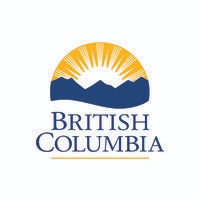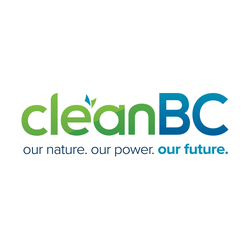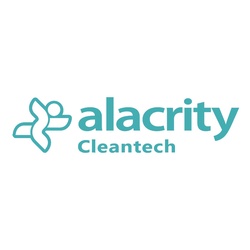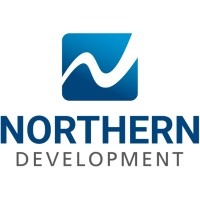
Closed
First Nations Clean Energy Business Fund — Capacity Funding
Last Update: October 27, 2025
BC, Canada
Funding for clean energy and capacity-building projects
Grant and Funding
At a glance
Funding available
Financing goals
Reduce the ecological footprint
Eligible Funding
- Maximum amount : 500,000 $
- Up to 37.5% of project cost
Timeline
- Closing date : April 30, 2024
Eligible candidates
Eligible Industries
- Utilities
Location
- British Columbia
Legal structures
- All legal structures
Annual revenue
- All revenue ranges
Organisation size
- All organization sizes
Audience
- Indigenous Peoples
Overview
Get up to $50,000 in support for Community Energy Plans (CEPs), feasibility studies, community training, or business/negotiation planning to develop clean energy initiatives and opportunities within First Nations communities.
Activities funded
- Conducting feasibility studies for clean energy projects.
- Community energy planning initiatives focused on clean energy.
- Engagement activities with clean energy project proponents.
- Analyzing the financial viability of potential clean energy projects before equity investment.
- Participating in project development activities within traditional territories related to clean energy.
Examples of admissible projects:
$ 50,000
Community training for clean energy initiatives
$ 50,000
Financial analysis for hydroelectric potential's First Nations territories
$ 50,000
Community Energy Plan for renewable energy transition
$ 50,000
Business plan for a wind energy farm
$ 50,000
Feasibility study for solar panel installation community centers
$ 50,000
Permitting and project commissioning for a biomass energy plant
Eligibility
- The applicant must be an Indigenous community in British Columbia, either a First Nation "band" as defined by the Indian Act (Canada) or an Indigenous governing body organized and established by Indigenous peoples.
- The proposed project must be located in British Columbia.
Who is eligible?
- Indigenous communities in British Columbia
- First Nation bands as defined by the Indian Act (Canada)
- Indigenous governing bodies established by Indigenous peoples
Who is not eligible
- Companies or organizations that are not recognized as Indigenous communities in British Columbia.
- Entities that do not qualify as a First Nation “band” as defined by the Indian Act (Canada) or as an Indigenous governing body organized and established by Indigenous peoples.
- Applicants proposing projects located outside of British Columbia.
Eligible expenses
- Feasibility studies for clean energy projects.
- Community energy planning activities.
- Engagement with project proponents, including financial analysis of potential projects.
- Preparation and review of business plans related to clean energy initiatives.
- Costs associated with permitting processes.
- Securing project financing.
- Costs for obtaining interconnection agreements.
- Major equipment orders required for project execution.
- Project construction commencement expenses.
- Final project design costs.
Eligible geographic areas
- British Columbia
Selection criteria
There are evaluation and selection criteria for the First Nations Clean Energy Business Fund (FNCEBF) grant:
- Projects must align with the FNCEBF funding categories and be located in British Columbia.
- Applications will be assessed based on the proposed project's feasibility, community impact, and potential for clean energy development.
- Priority will be given to projects that demonstrate strong community engagement, financial viability, and a clear pathway to implementation.
- Applicants must meet the eligibility criteria outlined for Indigenous communities in British Columbia.
How to apply
1
Ensure Eligibility
- Confirm that your community is an Indigenous community in British Columbia.
- Verify that the proposed project is located in British Columbia.
2
Choose Funding Category
- Decide whether to apply for Capacity Funding or Equity Funding based on your project needs.
- Review qualifications and requirements for your chosen funding category.
3
Complete Application Worksheet
- Download and fill out the application worksheet for the chosen funding category.
- For Capacity Funding, use the "FNCEBF Clean Energy Capacity Funding Application - Proposed Projects" form.
- For Equity Funding, use the "FNCEBF Clean Energy Equity Funding Application" form.
4
Prepare Supporting Documents
- For Capacity Funding, consider including a Community Energy Planning (CEP) document.
- For Equity Funding, ensure supporting materials like business plans, permits, or financing agreements are included.
5
Submit Application
- Ensure all parts of the application are complete and correct.
- Email your application to FNCEBF.MIRR@gov.bc.ca by the deadline (April 30, 2024).
6
Await Feedback
- Wait for confirmation and feedback from the Ministry of Indigenous Relations and Reconciliation.
- Respond to any requests for additional information or adjustments.
7
Revenue Sharing (if applicable)
- If eligible for revenue sharing, the Ministry will contact your community to discuss a revenue sharing agreement.
- Negotiate and finalize the terms of the revenue sharing agreement.
Additional information
- The funding cap for capacity projects has been reset, allowing previous recipients who reached the limit to reapply.
- The intake period for the next round of applications ends on April 30, 2024.
- Applicants should use the updated application worksheets, last revised in March 2023, for submission.
- Consideration may be given for additional support if multiple projects are proposed within a single applicant’s traditional territory.
Contacts
FNCEBF.MIRR@gov.bc.ca
BC, Canada
Apply to this program
Frequently Asked Questions about the First Nations Clean Energy Business Fund — Capacity Funding Program
Here are answers to the most common questions about the First Nations Clean Energy Business Fund — Capacity Funding. This section explains what the program is, how much funding is available, eligibility requirements, application deadlines, and other important details to help you determine if this grant is right for your business.
What is the First Nations Clean Energy Business Fund — Capacity Funding?
How much funding can be received?
Who is eligible for the First Nations Clean Energy Business Fund — Capacity Funding program?
What expenses are eligible under First Nations Clean Energy Business Fund — Capacity Funding?
Who can I contact for more information about the First Nations Clean Energy Business Fund — Capacity Funding?
Where is the First Nations Clean Energy Business Fund — Capacity Funding available?
Is the First Nations Clean Energy Business Fund — Capacity Funding a grant, loan, or tax credit?
Apply to this program
More programs like this

Grant and FundingOpen
CleanBC — Custom Program
CleanBCSupports electrification projects with incentives for reducing greenhouse gases

Grant and FundingClosed
Genome British Columbia — GeneSolve Program
Genome British ColumbiaSupports genomics research to solve sector challenges in British Columbia

Grant and FundingClosed
CICE 2023 Directed Call for Innovation — Measurement, Monitoring and Verification (MMV) of Carbon Management
Government of British ColumbiaFunding for BC-based innovators

Grant and FundingClosed
Open Innovation Program
Government of British ColumbiaFunding for BC-based innovators

Grant and FundingOpen
FortisBC — Custom Performance Program
FortisBCThe Custom Efficiency Program by FortisBC offers funding to significantly enhance energy efficiency and reduce greenhouse gas emissions in industrial, commercial, and agricultural facilities.

Grant and FundingClosed
Investing in Canada Infrastructure Program — CleanBC Communities Fund
Ministry of Environment and Climate Change StrategyMoney for BC clean-energy projects

Grant and FundingExpert AdviceSuspended
CleanBC — Custom-Lite Program
CleanBCSupports GHG reduction in commercial buildings through electrification measures

Expert AdviceOpen
Clean tech scale-up
Alacrity CanadaHelp to scale a British Columbia clean tech company

Grant and FundingOpen
Competitiveness Consulting Rebate
Northern Development Initiative TrustMoney for consulting projects in Northern B.C

Grant and FundingOpen
Genome British Columbia — Sector Innovation Program
Genome British ColumbiaFunds genomics research addressing strategic challenges in key BC sectors
Sign up to our platform to access the First Nations Clean Energy Business Fund — Capacity Funding information sheet for free
Get access to 4,000+ programs, practical guides, personalized alerts, and an AI assistant to support your grant applications.